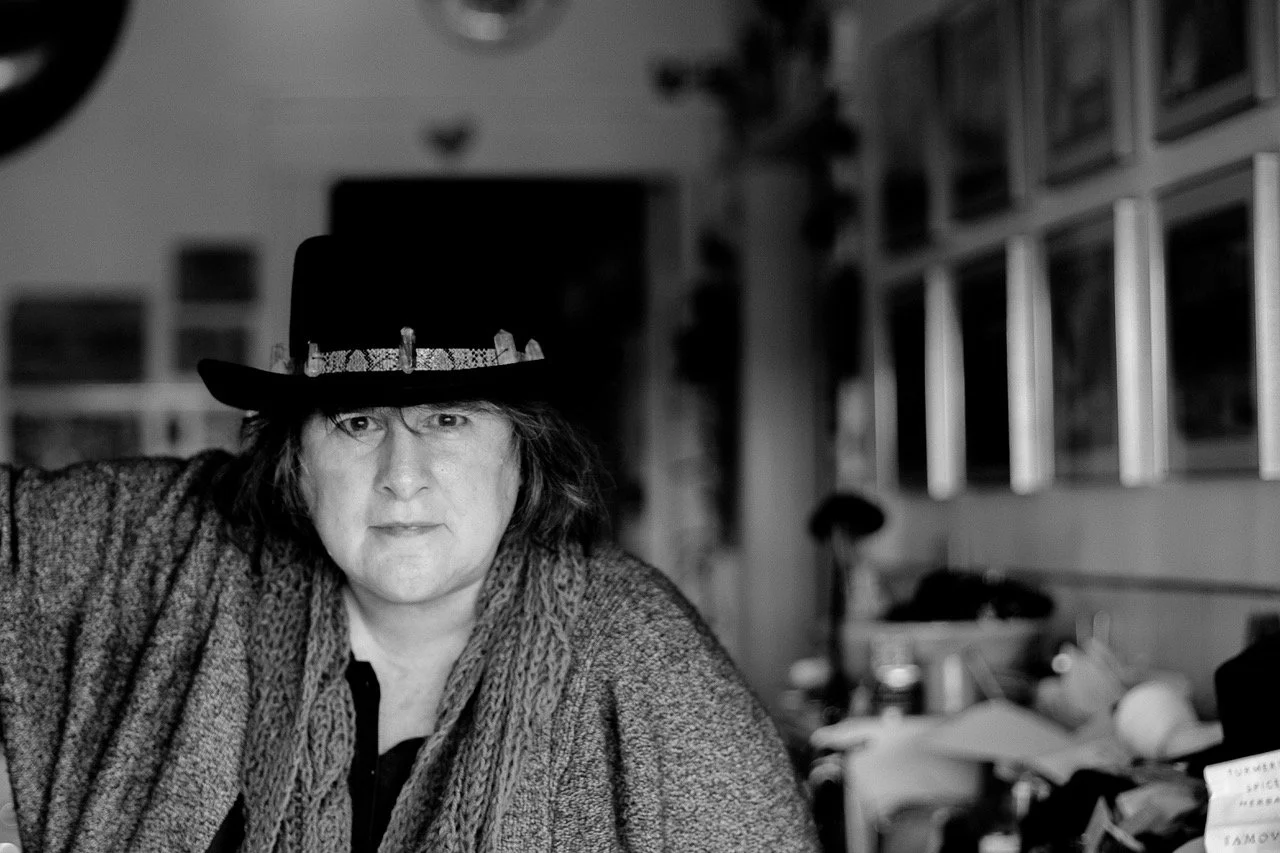Poet Kim Shuck
Kim Shuck's parents met on Market Street in the late-1950s when her dad wrestled an ocelot away from its grips on her mom.
In this podcast, the San Francisco poet laureate emerita talks about the five generations of San Franciscans on her mom's side. Her dad joined the Navy partly to get out of Oklahoma. He was "career" for a while, but then left that to become an electronics engineer in Silicon Valley.
Her San Francisco grandparents (maternal) met at the Polish Hall in the Mission. Kim spent significant time with both sets of grandparents—both her in The City and in Oklahoma.
When she was young, Kim's mom started working as a special needs para at a school near their home. She was also a founder of Noe Valley Nursery School, one of the first such co-ops in The City and also where Kim went to nursery school. Kim tells stories of the no longer extant Noe Valley Street Fair, which was a fundraiser for the school.
Kim spent most of her years growing up in the Mission, Noe Valley, and the Castro. She lists the different public schools she went to. She reminisces about growing up in the Sixties and Seventies in San Francisco, with an emphasis on the way people used to paint houses in The City in vibrant color and with many hand-painted details (see our episode with Bob "Dr. Color" Buckter)
We eventually get around to stories about outdoor music shows and her memories of seeing the San Francisco Mime Troupe when she was young. We also spend a good amount of time talking about her love of roller skating (see our podcasts last week with David Miles, Jr., of the Church of 8 Wheels).
Ruth Asawa was a neighbor and (probably) Kim's first art teacher at Alvarado Elementary School. Later in her life, Kim did origami and became friends with Ruth again.
Like so many guests of this show, Kim went to college at SF State. She recounts all the academic and social movements that have origins at the school, including ethnic students, free speech, and the American Indian takeover of Alcatraz.
One theme Kim keeps coming back to is the cyclical nature of things, especially pertaining to creativity and art in San Francisco. "One step forward, one step back. We're cha-cha-ing."
We end Part 1 with Kim going into her Cherokee heritage and then more of the story of her decision to stay in town and go to college at SF State.
Kim was, as she says, "deeply" into politics. She attended protests at the DNC in 1984, which took place in San Francisco. She felt pressures from the Red Power Movement, and talks about how tricky it was to be just the right amount of Indian. It was the middle of the Reagan era and Kim lived in the Castro, where AIDS was ravaging the gay community and the president infamously refused to even say the name of the disease.
As far as she and anyone in her life knows, Kim has always written. After college, a friend surprised her by asking Kim to read poetry live in front of people. She’s been doing that on and off since then. Kim talks about Murdered Missing, her book of poems on the large number of Indian women who disappear, even here in The City.
She spent many years teaching Native American arts, both at SF State and CCA. She taught origami arts at elementary schools all over The City. She has also written curriculum for The Exploratorium.
Kim shares the story of becoming San Francisco's seventh poet laureate, including how and where she was when she learned the news. She says she's incredibly honored to have been bestowed with the honor. (Tongo Eisen-Martin is the current poet laureate.)
We end this episode with Kim talking about what it means to still be here and her outlook for her hometown: San Francisco. If you're still listening at this point, keep going to hear Kim reading a couple of poems for us.
We recorded this podcast at Kim's partner's house in The Sunnyside in December 2021.
Photography by Michelle Kilfeather



